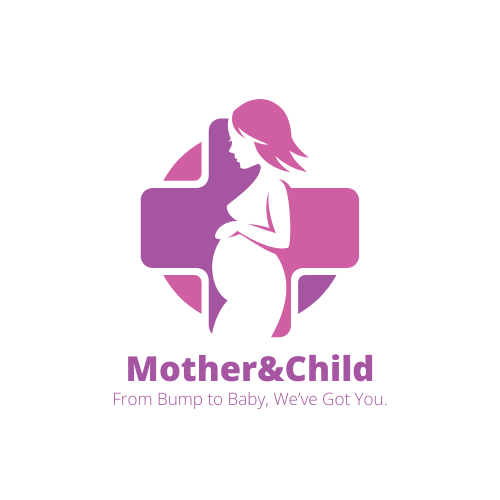🎯 Lesson Objective
To guide learners on where and how to access reliable, timely bilirubin testing for newborn jaundice—especially in low-resource African settings.
🏥 Why Location Matters
Many African babies with jaundice never receive proper testing because parents and caregivers don’t know where to go, who to call, or what equipment is needed. Knowing where bilirubin testing is available can mean the difference between life and lifelong disability (e.g., kernicterus).
🧭 Where to Access Reliable Jaundice Testing in Africa
✅ 1. Tertiary & Teaching Hospitals
These have full laboratory support and neonatal units equipped with bilirubin testing machines.
Examples:
-
Kenya: Kenyatta National Hospital (Nairobi), Moi Teaching Hospital (Eldoret), Pumwani Maternity Hospital
-
Nigeria: Lagos University Teaching Hospital (LUTH), University College Hospital (Ibadan), UNTH Enugu
-
Ghana: Korle-Bu Teaching Hospital (Accra), Komfo Anokye Hospital (Kumasi)
-
Uganda: Mulago National Referral Hospital (Kampala), Mbarara Regional Hospital
📌 Blood testing and phototherapy services often available.
✅ 2. County / District / Regional Hospitals
These are government-run or mission hospitals that may have:
-
Phototherapy machines
-
TcB devices (handheld skin bilirubin meters)
-
Basic blood bilirubin lab testing (serum bilirubin)
🧪 Tip: Call ahead to confirm they have newborn lab testing available.
✅ 3. Accredited Private Clinics and Labs
Many urban private hospitals and labs offer newborn bilirubin testing for a fee.
Examples:
-
Pathologists Lancet Kenya: https://www.lancet.co.ke
-
Synlab Nigeria: https://www.synlab.com.ng
-
Medlab Ghana: https://www.medlabghana.com
🧾 Cost: KES 500–2000 (Kenya) or ₦3000–10,000 (Nigeria) depending on location
✅ 4. CHW-Linked Health Posts (Pilots & NGO Programs)
In some regions, CHWs are trained and equipped with portable TcB meters (e.g., JM-105) under pilot programs.
Programs with pilots or donor-supported kits:
-
Living Goods (Kenya & Uganda): https://livinggoods.org
-
Neotree (Malawi, Zimbabwe, Nigeria): https://neotree.org
-
Save the Children NICU Strengthening Projects
🎯 Ask your CHW if they can refer or connect you with a nurse, mobile lab, or phototherapy unit nearby.
✅ 5. Maternal & Neonatal Helplines
Some regions offer phone-based referral services to connect families to nearby neonatal care:
-
Kenya’s 1195 GBV & Health Support Line (ask to be connected to a pediatric referral center)
-
Nigeria’s National Call Centre for Health Emergencies – 112
-
Ghana Health Service Neonatal Line: Often coordinated through local districts
🧰 Tools to Help CHWs Locate Testing Sites
| Tool | What It Does | Link |
|---|---|---|
| mDaktari (Kenya) | Digital map of pediatric services | https://mdaktari.africa |
| Bilitool | Jaundice treatment decision tool | https://bilitool.org |
| Neotree App | Clinical newborn tool for CHWs and nurses | https://neotree.org |
| Health Facility Registry – Nigeria | Find health centers by state | https://hfr.health.gov.ng |
📝 Community Health Worker Script:
“Mama, if baby is yellow, we can first check here. If needed, I’ll help you go to [district hospital]. It’s better to test than to wait — early help means full recovery.”
✅ Quick Recap:
| Facility Type | Has Blood Test? | Has Skin Test? | Has Phototherapy? | Referral Needed? |
|---|---|---|---|---|
| Teaching Hospital | ✅ | ✅ | ✅ | No |
| County Hospital | ✅ | Maybe | ✅ | Sometimes |
| CHW Outreach | ❌ | ✅ (some) | ❌ | ✅ |
| Private Clinic | ✅ | Maybe | ✅ | No |
| Health Post | ❌ | ❌ | ❌ | ✅ |
🧪 Quiz – Accessing Testing
Q1. Where is bilirubin testing always available?
A. Village pharmacy
B. Teaching hospital
C. Traditional healer
D. Maternity shelter
✅ Answer: B
Rationale: Teaching hospitals are equipped for neonatal labs and phototherapy.
Q2. A mother in a rural area asks where to test her jaundiced baby. What do you do?
A. Tell her to wait
B. Refer her to the nearest district or CHW with TcB device
C. Give paracetamol
D. Rub baby with palm oil
✅ Answer: B
Rationale: CHWs or district clinics with bilirubin screening are ideal for early referral.


